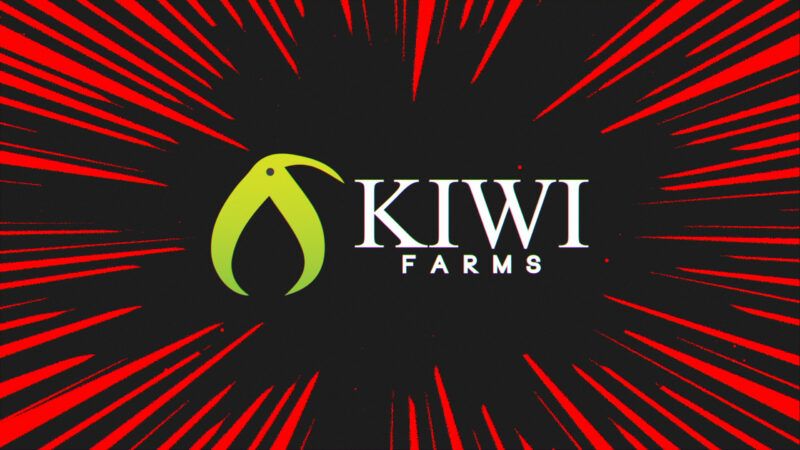Kiwi Farms Is Back
The return of the trollish forum demonstrates the futility of bans on bad speech.

It's been a little over a month since the internet services company Cloudflare terminated its relationship with Kiwi Farms, a web forum accused of fomenting harassment campaigns. But today, Kiwi Farms seems to be back and doing just fine.
After Cloudflare canceled Kiwi Farms' domain registration and DDoS mitigation services on September 3, the forum was temporarily inaccessible via its main URL (kiwifarms.net), though it could still be accessed on alternate domains during that period. (If you're curious about all the technical twists and turns, see this thread.) But by September 15, the main Kiwi Farms domain was back up. And the forum now seems to be operating normally.
The situation showcases once again how campaigns to rid the internet of supposed "hate speech"—or any particular type of speech—are doomed.
From pirated literature and academic papers to sex worker ads, MAGA organizing, or fringe forums, where's there's a will—and a pluralistic, global internet—there's a way.
This is undoubtedly a good thing. No group has ever gotten less radicalized by being driven underground, and no economic sector has ever gotten safer by being driven into a black market.
If you're worried that adult advertising platforms, fringe-right forums, etc. are harboring actual criminal actors, it's better for these sites to be accessible and hosted in the U.S. This way people can keep tabs on them, and platform operators are subject to subpoenas and other law enforcement requests. And if you're worried that certain platforms are hotbeds of hate or disinformation, it's better that those who would counter them can actually see what's being said. It's hard to challenge information or ideas that are exchanged more privately.
Those are the utilitarian reasons why the campaign to drive "dangerous" speech off the internet is misguided. Of course, there's also a more ideological or symbolic component.
In a liberal, pluralistic society, trying to deny entire groups of people the right to speak or associate is not great.
Private companies like Cloudflare are certainly within their rights to terminate services to platforms they deem dangerous or offensive. And they have reasonable incentives for doing so, given the drive to hold all sorts of internet intermediaries legally and professionally liable for third-party content. But the now popular online pastime of pressuring companies into these decisions is bad from both a culture-of-free-speech standpoint and a slippery slope standpoint. As Cloudflare itself pointed out in an August 31 blog post, the company's private decisions to terminate services to 8chan and the Daily Stormer were followed by "a dramatic increase in authoritarian regimes attempting to have us terminate security services for human rights organizations — often citing the language from our own justification back to us."
We already have ways of dealing with the relatively small amount of actually illegal online content without banning whole web forums or trafficking in guilt by association.
And the speedy return of Kiwi Farms demonstrates that the latter is not just illiberal but also futile.
Show Comments (65)